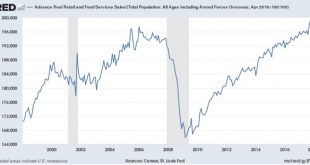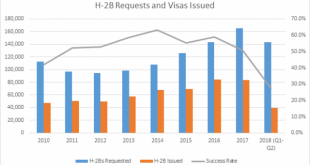$3 a gallon gas has returned! According to GasBuddy, as of this morning the average price of gas in the US is $3 a gallon: This is the highest in 3 1/2 years. YoY gas prices are up a little over 25%. I suspect that this is a significant psychological threshold. While it’s not a “shock,” which historically has caused Americans to cut back their spending by double the increased amount that they spend on gas, causing a recession, it might very well...
Read More »Gorz: “The Right to an Income and the Right to Work,” part one
Gorz: “The Right to an Income and the Right to Work,” part one From “Orientations and Proposals — The Reduction of Working Time: Issues and Policies” of Andre Gorz’s Critique of Economic Reason (1989) translated by Gillian Handyside and Chris Turner. I am posting the section on “The Right to an Income and the Right to Work” in two parts. This is part one: The Right to an Income and The Right to Work When the production process demands less work and...
Read More »Iran Responds to Plan B
Iran Responds to Plan B Juan Cole reports that Iran’s supreme leader, Ayatollah Khameini has responded to Trump’s withdrawal from the JCPOA and Pompeo’s Plan B 12 demands with 6 demands for Europe: 1) condemn the US withdrawal, 2) stop pressing Iran on missile development, 3) criticize any further US boycotts, 4) undo damage to Iran economy of boycotts especially to buy any oil not able to be exported because of them, 5) support financing of Iran...
Read More »Dear Professor Krugman, Say Its Name!!! “Taboo”
Dear Professor Krugman, Say Its Name!!! “Taboo” Paul Krugman is coming closer to embracing my “taboo” argument. A month ago I wrote that raising wages was becoming a taboo. I considered three alternative hypotheses: 1. monopsony (quoting Vox) [I]n recent years, economists have discovered another source: the growth of the labor market power of employers — namely, their power to dictate, and hence suppress, wages…..{Monopsonistic f]irms [which pay less...
Read More »Real retail sales update for April 2018
Real retail sales update for April 2018 It’s a slow start of the week, so let’s catch up on one of my favorite indicators, real retail sales, which were reported last week. First of all, adjusted for population, real retail sales have peaked a year or more in advance of each of the last two recessions. That hasn’t happened yet, as the long term rising trend is intact, even if sales have backed off their wintertime highs. If they go longer than 6 months...
Read More »Plan B on Iran
Plan B on Iran Earlier today (Monday) ne US Secretary of State, Mike Pompeo, presented this administration’s “Plan B” at the Heritage Foundation on how to deal with Iran following the US’s withdrawal from the nuclear deal, the JCPOA. Pompeo presented 12 demands and threatened to impose “the strongest economic sanctions in history.” The Trump administration may wish to do the latter, but the refusal of all the other parties to the JCPOA to go along...
Read More »H-2B, or Not to Be? A Look at Labor Shortages and Immigrant Labor
by Jeff Soplop H-2B, or Not to Be? A Look at Labor Shortages and Immigrant Labor Several publications recently ran stories on issues with the H-2B visa program and impending shortages that are affecting local economies of various parts of the country. For those who aren’t familiar, the H-2B program allows US employers to bring in temporary workers for non-agricultural jobs. While the length of stay varies and can sometimes be extended, typically these...
Read More »Downsizing
Dan here….Downsizing the home when retiring? How is that done? Anecdotal evidence in the Boston area reveals to me several reasons why downsizing is only a small percentage of the housing market: Aside from being able to handle maintenance to a later age than in the past, and wishing to maintain personal community that a move would disrupt, downsizing is not necessarily as affordable as a cursory look might suggest. Here is one look at data: Via...
Read More »Jobs, Jobs, Jobs — GUARANTEED!
The current mania for “job guarantee” policies is making the Sandwichman anxious. I’ve been on the full employment beat for over 20 years so I think I have a pretty good grasp of the terrain. First principle is that there are no panaceas. My favorite policy option — reduction of working time — is not a panacea. Neither is yours. Like my learned friend Max B. Sawicky, I am in favor of a job guarantee — provided it meets MY criteria. The proposals currently...
Read More »A Guide to the (Financial) Universe: Part III
by Joseph Joyce A Guide to the (Financial) Universe: Part III Parts I and II of this Guide appear here and here. 4. Stability and Growth Is the global financial system safer a decade after the last crisis? The response to the crisis by central banks, regulatory agencies and international financial institutions has increased the resiliency of the system and lowered the chances of a repetition. Banks have deleveraged and possess larger capital bases....
Read More » Heterodox
Heterodox




